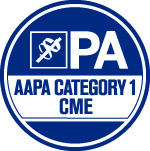WMJ Vol 122 Issue 1: The Biggest Problem With Access: Provider Reports of the Effects of Wisconsin 2011 Act 217 Medication Abortion Legislation
ABSTRACT
Introduction: Abortion legislation in the United States determines people’s access to services, including the abortion modality of their choice. In 2012, Wisconsin legislators passed Act 217, banning telemedicine for medication abortion and requiring the same physician to be physically present when patients signed state-mandated abortion consent forms and to administer abortion medications over 24 hours later.
Objective: No research documented real-time outcomes of 2011 Act 217 in Wisconsin; this study documents providers’ descriptions of the effects of Wisconsin abortion regulations on providers, patients, and abortion care in the state.
Methods: We interviewed 22 Wisconsin abortion care providers (18 physicians and 4 staff members) about how Act 217 affected abortion provision. We coded transcripts using a combined deductive and inductive approach, then identified themes about how this legislation affects patients and providers.
Results: Providers interviewed universally reported that Act 217 negatively affected abortion care, with the same-physician requirement especially increasing risk to patients and demoralizing providers. Interviewees emphasized the lack of medical need for this legislation and explained that Act 217 and the previously enacted 24-hour waiting period worked synergistically to decrease access to medication abortion, disproportionately affecting rural and low-income Wisconsinites. Finally, providers felt Wisconsin’s legislative ban on telemedicine medication abortion should be lifted.
Conclusions: Wisconsin abortion providers interviewed underscored how Act 217, alongside previous regulations, limited medication abortion access in the state. This evidence helps build a case for the harmful effects of non–evidence-based abortion restrictions, which is crucial considering recent deferral to state law after the fall of Roe v Wade in 2022.
Intended Audience
The target audience for this journal-based activity is healthcare providers caring for the people and communities of Wisconsin and beyond.
Learning Objectives
As a result of this journal-based activity, learners, as members of the healthcare team, will be able to:
- Explain 2011 Act 217 in Wisconsin, banning telemedicine for medication abortion and requiring the same physician to be physically present when patients signed state-mandated abortion consent forms and to administer abortion medications over 24 hours later
- Summarize the results of a qualitative study involving interviews with abortion care providers in Wisconsin about how Act 217 affected abortion provision.
- Discuss how current abortion legislation has influenced abortion care and access in the learner’s practice.
FACULTY DISCLOSURE
It is the policy of the University of Wisconsin–Madison Interprofessional Continuing Education Partnership (ICEP) to identify, mitigate and disclose all relevant financial relationships with ineligible companies* held by the speakers/presenters, authors, planners, and other persons who may influence content of this accredited continuing education (CE). In addition, speakers, presenters and authors must disclose any planned discussion of unlabeled/unapproved uses of drugs or devices during their presentation.
For this accredited continuing education activity all relevant financial relationships have been mitigated and detailed disclosures are listed below.
| Name of Individual | Individual's Role in Activity | Financial Relationship Disclosure | Discussion of |
| Taryn M. Valley, MA | Author | No relevant relationships with ineligible companies to disclose | No |
| Meghan Zander, BA | Author | No relevant relationships with ineligible companies to disclose | No |
| Laura Jacques, MD | Author | No relevant relationships with ineligible companies to disclose | No |
| Jenny A. Higgins, PhD, MPH | Author | No relevant relationships with ineligible companies to disclose | No |
| Valerie J. Gilchrist, MD | Reviewer | No relevant relationships with ineligible companies to disclose | No |
| Sarina B. Schrager, MD | Reviewer | No relevant relationships with ineligible companies to disclose | No |
| Fahad Aziz, MD | Editor | No relevant relationships with ineligible companies to disclose | No |
| Roberta Pawlak, PhD, RN, NEA-BC | Reviewer | No relevant relationships with ineligible companies to disclose | No |
| Cassie Meffert, PA | Reviewer | No relevant relationships with ineligible companies to disclose | No |
| Shezad Baloch | Accreditation Specialist | No relevant relationships with ineligible companies to disclose |
*Ineligible companies are those whose primary business is producing, marketing, selling, re-selling, or distributing healthcare products used by or on, patients.
The ACCME does not consider providers of clinical services directly to patients to be ineligible companies.
Accreditation
Accreditation Statement
 | In support of improving patient care, this activity has been planned and implemented by the University of Wisconsin–Madison ICEP and the Wisconsin Medical Journal. The University of Wisconsin–Madison ICEP is jointly accredited by the Accreditation Council for Continuing Medical Education (ACCME), the Accreditation Council for Pharmacy Education (ACPE), and the American Nurses Credentialing Center (ANCC), to provide continuing education for the healthcare team. |
Credit Designation Statements
American Medical Association (AMA)
The University of Wisconsin–Madison ICEP designates this journal-based CE activity for a maximum of 1.0 AMA PRA Category 1 Credit™. Physicians should claim only the credit commensurate with the extent of their participation in the activity.
American Nurses Credentialing Center (ANCC)
The University of Wisconsin–Madison ICEP designates this journal-based CE activity for a maximum of 1.0 ANCC contact hours .
 | The University of Wisconsin–Madison ICEP has been authorized by the American Academy of PAs (AAPA) to award AAPA Category 1 CME credit for activities planned in accordance with AAPA CME Criteria. This activity is designated for 1 AAPA Category 1 CME credits. Approval is valid until 03/03/2025. PAs should only claim credit commensurate with the extent of their participation. |
Continuing Education Units
The University of Wisconsin–Madison ICEP, as a member of the University Professional & Continuing Education Association (UPCEA), authorizes this program for 0.1 continuing education units (CEUs) or 1 hour.
Available Credit
- 1.00 AAPA Category 1 CME
- 1.00 AMA PRA Category 1 Credit™
- 1.00 ANCC Contact Hours
- 1.00 University of Wisconsin–Madison Continuing Education Hours
- 1.00 Approved for AMA PRA Category 1 Credit™
Registration for this activity can only be completed through the ICEP Learning Portal. Attendee registrations made through any other sites cannot be honored. UW-Madison ICEP is not able to refund fees paid through unaffiliated registration sites, such as eMedEvents.com, MedConfWorld.com, EventEgg.com, and 10times.com. Please report any unauthorized websites or solicitations for registrations to [email protected].
Accessibility
If you need anything to participate in this program, please contact [email protected].
Required Hardware/software
Free, current version of Chrome, Firefox, Safari, or Edge. Some older browsers and Microsoft Internet Explorer could produce error messages or not display the content correctly.
Free, current version of Adobe Acrobat Reader or other .pdf reader.

 Facebook
Facebook X
X LinkedIn
LinkedIn Forward
Forward